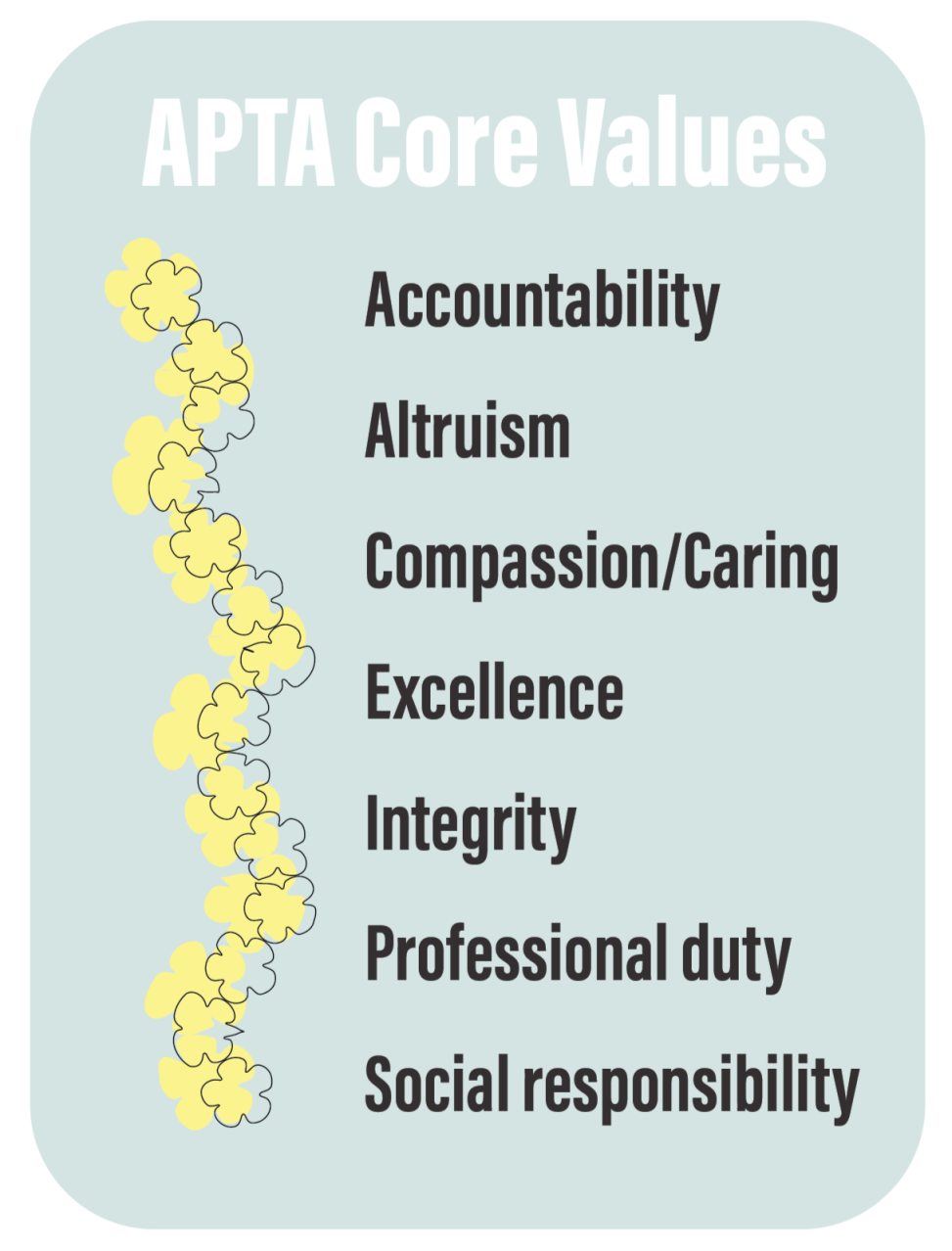This visual representation depicts my alignment with the APTA Core Values of Accountability, Altruism, Compassion/Caring, Excellence, Integrity, Professional duty, and Social responsibility.
The principle from the APTA Code of Ethics that resonated with me the most was “Physical therapists shall be trustworthy and compassionate in addressing the rights and needs of patients and clients.” This principle aligns with the APTA Core Values of altruism, collaboration, compassion, caring, and duty as well as the HPU DPT program value of kuleana.
Compassion and caring are essential to patient interaction and promoting a therapeutic alliance. Most healthcare providers got into the field as a way to help others, and using this mindset as a guiding principle is something I seek to do with every patient interaction. As a clinician, I seek to build a similar rapport and reassure my patients that their needs are important and their time with me is more than just a billable unit. As I continue growing, I hope to become a more effective advocate for my patients and support them with a deeper well of resources and knowledge.
In my future practice, I’m committed to engaging more deeply with professional communities and extending my impact beyond the clinic. I admire clinicians who collaborate across disciplines and contribute to their communities through free workshops and educational outreach. As a personal trainer, I partnered with a chiropractor and physical therapist on a referral basis—relationships I intend to continue and expand after graduation.
As a clinician, I understand the value of a strong referral network and the importance of actively guiding patients through that process. Staying involved after a referral strengthens the therapeutic alliance and supports continuity of care. For me, social responsibility means not only treating patients but also contributing to a more informed, connected, and supported community.
Accountability: active acceptance of the responsibility for the diverse roles, obligations, and actions of the physical therapist and physical therapist assistant, including self‐regulation and other behaviors that positively influence patient and client outcomes, the profession, and the health needs of society.
Altruism: primary regard for or devotion to the interest of patients and clients, thus assuming the responsibility of placing the needs of patients and clients ahead of the physical therapist’s or physical therapist assistant’s self‐interest.
Compassion/Caring: the desire to identify with or sense something of another’s experience; a precursor of caring. Caring is the concern, empathy, and consideration for the needs and values of others.
Excellence: consistently using current knowledge and skills while understanding personal limits, integrating the patient or client perspective, embracing advancement, and challenging mediocrity.
Integrity: steadfast adherence to high ethical principles or standards, being truthful, ensuring fairness, following through on commitments, and verbalizing to others the rationale for actions.
Professional Duty: commitment to meeting one’s obligations to provide effective physical therapist services to patients and clients, to serve the profession, and to positively influence the health of society.
Social Responsibility: promotion of a mutual trust between the profession and the larger public that necessitates responding to societal needs for health and wellness.
